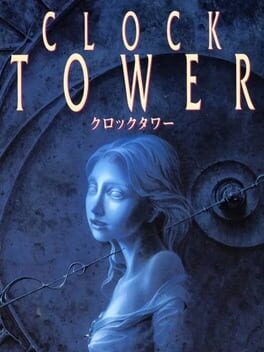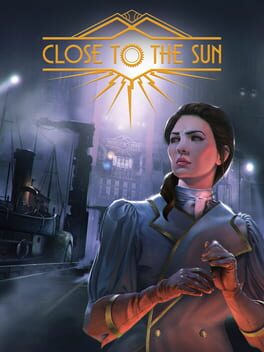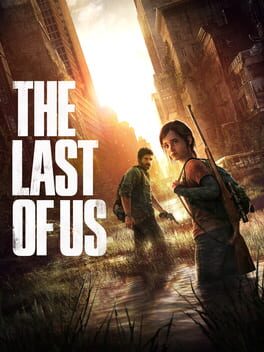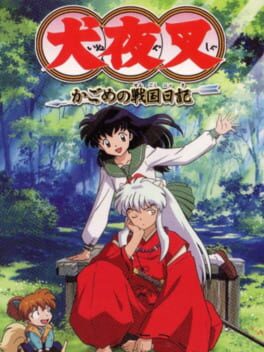Gaming Terms I've Coined
As reviewers, we all love language, but even our native tongue can hit a limit when trying to describe or categorize something. This applies especially well to the digital humanities, wherein society has seen an ever-growing influx of new technologies without accompanying terminology.
Video games fall under this category, and so, over the years, I've come-up with specific labels or phrases to express aspects of gaming that otherwise lack an "official" word. For the purposes of illustration, the games selected below represent (but are NOT wholly encompassing of) these pieces of jargon.
This list will be continually added to if/when more nomenclature is thought-up.
Video games fall under this category, and so, over the years, I've come-up with specific labels or phrases to express aspects of gaming that otherwise lack an "official" word. For the purposes of illustration, the games selected below represent (but are NOT wholly encompassing of) these pieces of jargon.
This list will be continually added to if/when more nomenclature is thought-up.
4 Games
Running Sims - a play on "walking sims/simulators," Running Sims refer to horror games that remove all forms of combat, forcing players to run-and-hide from every conceivable threat.
While pioneers will always be up-for-debate, Clocktower was arguably the first major iteration of this, hence it's selection as the image. For more modern titles, see Frictional Games's library (Amnesia, SOMA) and the Outlast series.
While pioneers will always be up-for-debate, Clocktower was arguably the first major iteration of this, hence it's selection as the image. For more modern titles, see Frictional Games's library (Amnesia, SOMA) and the Outlast series.
Jogging Sims - Akin to running sims, Jogging Sims are walking sims that feature action beats in the form of extended chase sequences.
I jokingly came-up with the phrase in my Close to the Sun review due to the halfway measure taken by the devs, but wouldn't be surprised if other thrillers occupied a similar niche as a means of distinguishing themselves from outdated stigma against walking sims.
I jokingly came-up with the phrase in my Close to the Sun review due to the halfway measure taken by the devs, but wouldn't be surprised if other thrillers occupied a similar niche as a means of distinguishing themselves from outdated stigma against walking sims.
The Last of Us Problem - a (in my opinion) immersion flaw in story-driven video games entailing a conflict between the narrative impetus and gameplay objectives. You generally have a plot that encourages player progression towards the next objective, only for the gameplay to necessitate inherent slow-downs: the clashing notions resulting in moments of incredulity.
As the name implies, TLOU, despite being a great game, exemplifies this best - you're often privy to situations wherein you have to follow an NPC, but because scavenging is concurrently important for maintaining/crafting supplies, you'll frequently be breaking-off from the conversation to go digging around the adjacent locales. Without getting into spoilers, the Bill and Tommy sections epitomize this best.
That said, it's an issue that tends to afflict certain open world titles given the obvious want for player exploration against the world-threatening machinations of the overarching plot.
Interestingly, for a counter-example of a game that resolved this best, see Guardians of the Galaxy.
As the name implies, TLOU, despite being a great game, exemplifies this best - you're often privy to situations wherein you have to follow an NPC, but because scavenging is concurrently important for maintaining/crafting supplies, you'll frequently be breaking-off from the conversation to go digging around the adjacent locales. Without getting into spoilers, the Bill and Tommy sections epitomize this best.
That said, it's an issue that tends to afflict certain open world titles given the obvious want for player exploration against the world-threatening machinations of the overarching plot.
Interestingly, for a counter-example of a game that resolved this best, see Guardians of the Galaxy.
Kagome Syndrome - a (in my opinion) lazy storytelling device wherein a normal human being is transported to an alternate reality/timeline/plane of existence and has no freak-out or existential crisis over their new circumstances. Named after the heroine of Inuyasha who, surprise surprise, was perfectly fine going from regular ole' Japan to magical Sengoku Japan in the first chapter.
Kagome no Sengoku was chosen as the list image because it contains the titular character in question, NOT because it's a representation of this circumstance. In terms of games that do typify this, it's hard to state any explicitly as, as you can imagine, such titles tend to use this change for plot twist purposes, though if I find/recall any non-spoilery examples, I'll edit accordingly.
Please note that this does not refer to products with mute protagonists ala Majora's Mask due to those games obviously being gameplay-focused/not caring about their MC's feelings.
Kagome no Sengoku was chosen as the list image because it contains the titular character in question, NOT because it's a representation of this circumstance. In terms of games that do typify this, it's hard to state any explicitly as, as you can imagine, such titles tend to use this change for plot twist purposes, though if I find/recall any non-spoilery examples, I'll edit accordingly.
Please note that this does not refer to products with mute protagonists ala Majora's Mask due to those games obviously being gameplay-focused/not caring about their MC's feelings.



